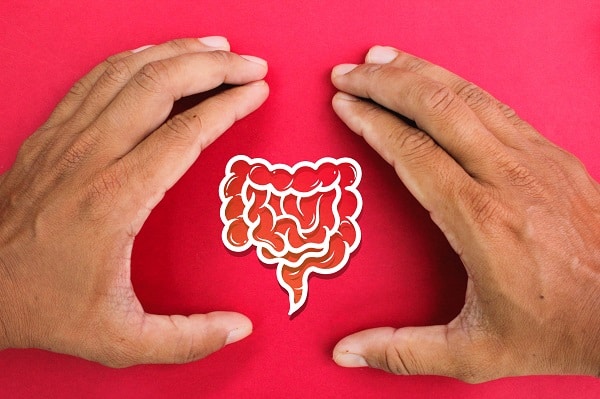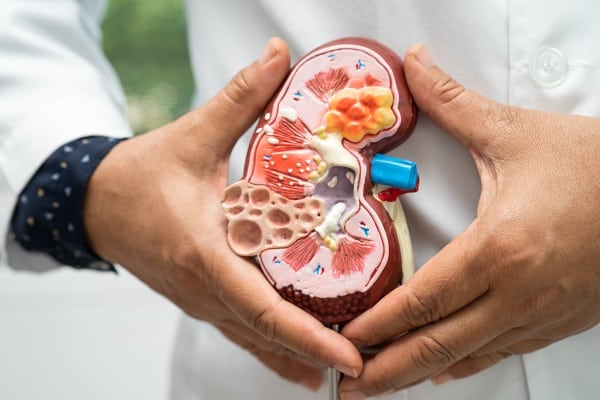The Paleo Diet, often referred to as the “Caveman Diet,” emphasizes natural, unprocessed foods that mimic the dietary habits of our Paleolithic ancestors. By focusing on whole foods such as meat, fish, fruits, vegetables, and nuts, the diet aims to align with our genetic makeup and promote optimal health. As the diet gains popularity, it also sparks curiosity and debate. This post will explore the core principles, nutritional profile, advantages for weight loss, and more, providing a comprehensive understanding of the benefits of the Paleo Diet.
Contents
The Core Principles Of The Paleo Diet

The Paleo Diet is founded on the belief that modern eating habits have diverged from the way human ancestors ate, leading to various health issues. By returning to a diet rich in whole, unprocessed foods, proponents argue that you can restore balance and well-being. This approach emphasizes the consumption of lean meats, fish, fruits, vegetables, and nuts while avoiding grains, legumes, dairy, and processed foods. The idea is to eat in harmony with your genetic makeup, as your body is designed to thrive on these natural foods.
The core principles of the Paleo Diet are not just about what to eat but also about embracing a holistic lifestyle that includes physical activity and mindfulness. It’s a philosophy that goes beyond mere dieting, aiming to create a sustainable way of living that resonates with your biological heritage. By understanding these principles, one can appreciate the underlying logic of the Paleo Diet and how it seeks to foster a connection between modern life and ancestral roots.
Nutritional Profile

The nutritional profile of the Paleo Diet is characterized by a higher intake of protein, healthy fats, and fiber, along with a reduced consumption of carbohydrates. This balance is achieved by focusing on nutrient-dense foods that provide essential vitamins and minerals. Unlike many modern diets filled with processed foods and artificial additives, the Paleo Diet encourages eating whole, natural ingredients that nourish the body and support overall wellness.
Comparing the Paleo Diet with other popular diets reveals distinct differences in nutritional emphasis. For instance, the diet’s focus on lean proteins and healthy fats can improve satiety and energy levels. Furthermore, the exclusion of grains and processed sugars helps to stabilize blood sugar levels, making it an attractive option for those looking to manage weight or metabolic health. Understanding the nutritional profile of the Paleo Diet provides insight into why it may offer unique health benefits.
Weight Loss Benefits

The Paleo Diet’s emphasis on whole, nutrient-dense foods and elimination of processed carbohydrates often leads to a natural reduction in calorie intake. This, coupled with the diet’s focus on protein and healthy fats, can promote a feeling of fullness and aid in weight loss. Many individuals report success in shedding excess pounds when adhering to the Paleo Diet, finding that the natural, satisfying foods make it easier to manage hunger and cravings.
Scientific evidence also supports the weight loss claims associated with the Paleo Diet. Research has shown that individuals following the diet may experience significant weight loss and improvements in body composition. The combination of nutrient-dense foods and a focus on overall lifestyle changes, such as increased physical activity, creates a holistic approach to weight management. The weight loss benefits of the Paleo Diet are not just about cutting calories but about embracing a healthier way of eating that aligns with your biological needs.
Improved Digestive Health

Along with aiding in weight loss, the Paleo Diet has also been shown to benefit digestive health. By eliminating common irritants such as processed sugars, artificial additives, and grains, the diet promotes a healthier gut environment. The inclusion of fiber-rich vegetables and fermented foods supports the growth of beneficial gut bacteria, leading to improved digestion and absorption of nutrients. This approach aligns with the natural function of the digestive system, reducing inflammation and discomfort often associated with modern dietary habits.
The connection between the Paleo Diet and gut health extends beyond mere digestion. Research suggests that a healthy gut microbiome plays a vital role in overall health, influencing everything from immune function to mental well-being. By fostering a balanced gut environment, the Paleo Diet may contribute to broader health improvements, including reduced risk of chronic digestive disorders.
Impact On Chronic Diseases

The Paleo Diet’s emphasis on nutrient-dense, natural foods has even been linked to positive effects on chronic diseases such as heart disease, diabetes, and metabolic syndrome. By reducing processed foods and focusing on quality fats, lean proteins, and whole vegetables, the diet may help regulate blood sugar levels, reduce inflammation, and improve lipid profiles. These factors are essential in managing and preventing chronic conditions that are prevalent in modern society.
However, it’s essential to recognize that the Paleo Diet is not a one-size-fits-all solution to chronic diseases. Individual responses may vary, and the diet should be tailored to specific needs and medical conditions. Consulting with healthcare professionals and considering the broader context of lifestyle factors is crucial in utilizing the Paleo Diet as a therapeutic approach.
Mental And Physical Performance

For those looking to boost energy and performance, the Paleo Diet can offer key benefits. By providing steady energy through healthy fats and proteins, the diet supports cognitive function and mental clarity. The elimination of processed sugars and refined carbohydrates helps avoid energy crashes and mood swings, contributing to sustained focus and productivity.
In the realm of physical performance, athletes and fitness enthusiasts often embrace the Paleo Diet for its emphasis on natural, energy-dense foods. The diet supports muscle growth, recovery, and endurance, aligning with the needs of active individuals. Whether for professional athletes or those seeking to improve general fitness, the Paleo Diet’s impact on mental and physical performance offers a compelling reason to consider this nutritional approach.
Sustainability And Ethical Considerations

Sustainability has been a topic of increasing importance in the past decade, and nutritional approaches are no exception. As part of a broader effort towards sustainability, many have turned to the Paleo Diet as an ethical choice for their dietary habits. By avoiding processed foods and promoting a more plant-focused diet, the Paleo Diet has been shown to have a smaller environmental footprint.
The emphasis on pasture-raised meats and wild-caught fish also contributes to ethical considerations, reflecting an overall commitment to the stewardship of our natural resources. As an approach that combines environmental and ethical considerations, the Paleo Diet can be a powerful tool for those looking to support sustainability through their nutritional choices. Plus, it’s a delicious way to get your daily nutrition!
Challenges And Criticisms

Despite its many proponents, the Paleo Diet is not without challenges and criticisms. Some argue that the diet is too restrictive, eliminating entire food groups like grains and dairy that can be part of a healthy diet. Others point out potential nutrient deficiencies, such as calcium and vitamin D, due to the exclusion of dairy products. The diet’s emphasis on meat also raises concerns about sustainability and ethical considerations, as discussed earlier.
The challenges of following the Paleo Diet extend to practical aspects as well. Finding suitable food options, especially when dining out or traveling, can be difficult. The cost of high-quality, organic, or grass-fed products may also be a barrier for some individuals. Despite these challenges, many find the benefits of the Paleo Diet to outweigh the drawbacks, and with careful planning and consideration, these challenges can often be mitigated.
Is The Paleo Diet Right For You?
The Paleo Diet offers a compelling approach to nutrition, grounded in the belief that aligning your diet with your genetic makeup can promote optimal health. From weight loss and digestive health to chronic disease management and mental clarity, the benefits are multifaceted. While challenges and criticisms exist, they often serve as opportunities for reflection and personalization. The Paleo Diet’s emphasis on whole, natural foods and a holistic lifestyle resonates with many, offering a path to wellness that honors ancestral roots. This exploration of the Paleo Diet’s benefits, principles, and considerations aims to provide readers with the insights needed to make informed and empowered dietary choices.


